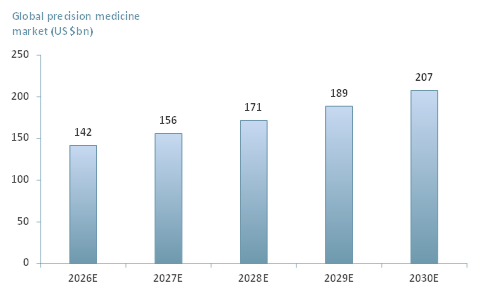Precision medicine investor returns
Svante Paabo and Hugo Zeberg (German researchers from the Max Planck Institute for Evolutionary Anthropology) released a study in Nature on 30 Sept. 2020 indicating that individuals with genes inherited from Neanderthals are involved in some of the most severe Covid cases.
- The study was carried out by examining a strand of DNA in individuals with severe cases of Covid and it was compared to sequences from Neanderthals known to have been passed down in Europeans and Asians.
- This gene variant or Neanderthal haplotype, was inherited by “modern humans” when Neanderthals interbred approximately 60,000 years ago.
- Paabo and Zeberg observed that the DNA of a 50,000 year old Neanderthal skeleton discovered in Croatia, had these gene variations.
- The researchers reported that individuals with these gene variants are 3x more likely to require artificial ventilation if affected by Sars-CoV-2.
- In contrast Dr. Jeffrey Barret – a geneticist from Britain’s Sanger Institute – does not believe that there is anything significant about the fact that this gene variant is found in Neanderthals. Dr. Barret observes that humans, in general, have a diverse set of genes.
- Barret says that Neanderthal haplotypes in modern human DNA only explain a small percentage of the differences in the severity of the 2020 pandemic cases.
- Nevertheless, Paabo and Zeberg are steadfast in their suggestion that in relation to coronavirus, this gene flow from Neanderthals to humans has significance today.
Covid-19 has shown us that the virus, like many other life threatening diseases, can affect anyone regardless of race, sex or age. Our genetic make-up dates back to Neanderthals, pre-human ancestors and even back to when all ancient humans lived in Africa.
The Max Planck Institute studies also suggest that diagnosing an individual’s susceptibility to a certain disease by profiling their DNA is a preventive or at least important planning measure – allowing medics to ‘get ahead of the curve’.
The ‘worst case scenario’ could potentially be prevented but in the event that a person does fall ill, the medical profession can provide bespoke treatment based on the patients genetic makeup and without unconscious bias.
Coronanvirus (Rona as the kids now say) and the new normal has created increased demand for R&D in the healthcare industry and in particular in the search for alternative approaches to defining and delivering treatments.
We forecast healthcare R&D spend to reach $233bn by 2025E up from $185bn in 2020 (a CAGR of 5%), in our blog ‘what can ants and bees teach us about containing disease’.
Genome sequencing is paving the way for an increased need in precision medicine by developing an holistic approach to individual patient treatment.
Furthermore the risk of unconscious bias in diagnosis by doctors is further reduced (Liquid biopsies – un unbiased diagnosis) or lack thereof, will be carried out solely on the basis of someone’s blood or DNA and not their physical appearance.
The precision medicine market is expected to increase to $141.7bn globally by 2026 up from $48.9bn in 2017, a staggering increase of 190%. In Exhibit 1 below, we forecast that the precision market will reach over $200bn in 2030, based on our conservative scenario using a 4-year CAGR of 10%.
Exhibit 1 – Global precision medicine market, 2026E-2030E
 Sources: ACF Equity Research; BIS Research
Sources: ACF Equity Research; BIS Research
The increase in R&D spend and the increasing popularity and need for precision medicine represents an opportunity for governments to promote the need for bespoke medicine and do so profitably and cost effectively. In my view precision medicine will decrease the costs to health services and insurers – by being more effective.
Precision medicine also provides an opportunity for small and mid-cap companies to enter the market using a different route to that of drug research, development and trialling.
A lower risk route can be of interest to investors. Precision medicine companies can leverage the extant drug and procedure database. Precision medicine can create new markets for existing conditions using existing indications or reveal new indications for existing therapies – that has to be attractive for investor risk and return in healthcare.
Author: Renas Sidahmed – Renas is a Staff Analyst and part of the Sales & Strategy team at ACF Equity Research. See Renas’s profile













